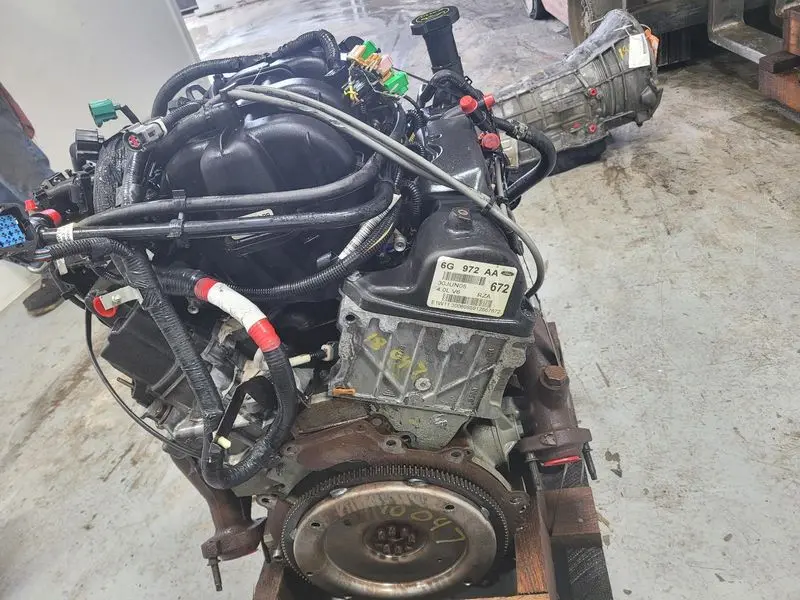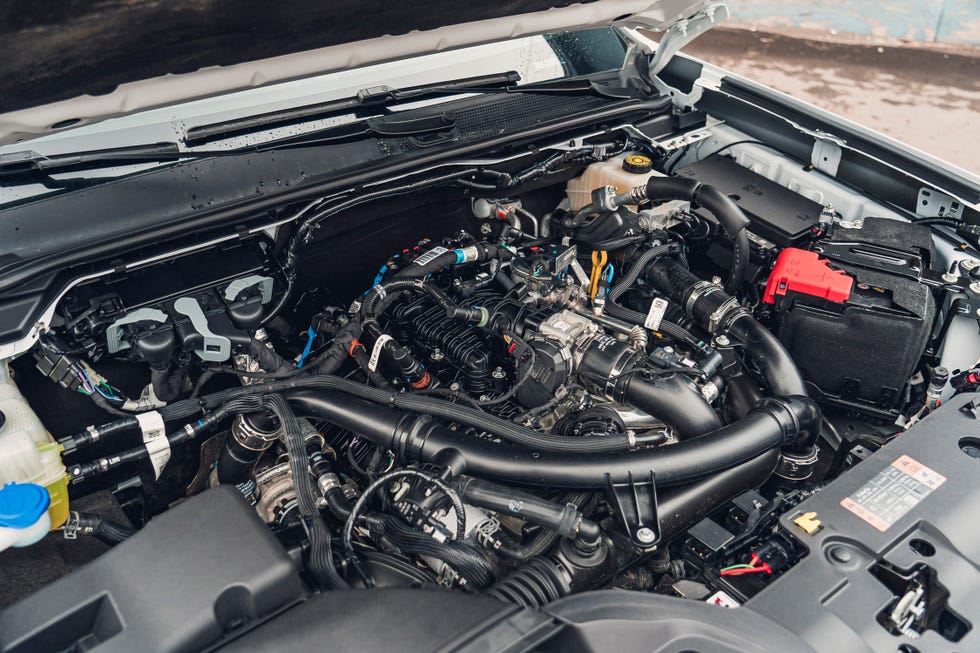Is the 2.2 Ford Ranger Engine the Right Fit for Your Driving and Work Needs?
Is the 2.2 Ford Ranger Engine the Right Fit for Your Driving and Work Needs?
Blog Article
How to Select the Right Automobile Engine for Maximum Efficiency and Performance
Choosing the proper cars and truck engine to achieve an optimum balance of efficiency and performance demands a nuanced understanding of numerous engine types and their specific characteristics. Factors such as engine variation, the variety of cyndrical tubes, and gas kind play a critical role in determining both power outcome and gas economy. While some might lean towards performance-driven choices, others may focus on sustainability and effectiveness. Recognizing these dynamics is essential; nonetheless, the obstacle depends on straightening these qualities with your specific driving requirements and preferences. What factors to consider will eventually guide your choice?
Recognizing Engine Kind
When picking an automobile, one of the most vital elements to think about is the engine kind, which acts as the heart of the car. The engine kind considerably influences the car's total performance, longevity, and viability for your driving requirements. There are primarily three engine kinds to think about: interior combustion engines (ICE), hybrid engines, and electrical engines.
Interior combustion engines continue to be one of the most usual, operating on gas or diesel. They are understood for their power and acceleration, making them ideal for performance-oriented lorries. Nevertheless, they may drop short in gas performance and ecological effect.
Crossbreed engines combine an interior combustion engine with an electrical motor, providing an equilibrium between efficiency and gas economic climate. They are progressively popular for motorists seeking decreased exhausts while still supplying sufficient power.
Electric engines, powered entirely by batteries, are obtaining traction due to their ecological benefits and lower running expenses. They supply instantaneous torque and a silent driving experience, making them optimal for metropolitan travelling.

Performance vs. Performance
Choosing the ideal engine kind entails weighing the trade-offs in between efficiency and efficiency. Performance normally describes how well an engine can supply power and velocity, which is frequently associated with larger variation engines or those with turbocharging capacities. These engines generally give exhilarating driving experiences and fast action times, making them popular among fanatics.
On the other hand, effectiveness concentrates on fuel economic situation and lower emissions. Smaller sized engines, particularly those geared up with innovative modern technologies such as direct gas shot and variable shutoff timing, tend to deliver much better miles per gallon and minimized carbon impacts. While these engines may compromise some power compared to their bigger equivalents, they typically excel in daily driving circumstances where high efficiency is not always necessary.
Ultimately, the option in between efficiency and effectiveness rest on private concerns. A motorist that values spirited driving might focus on a high-performance engine, while someone looking for affordable commuting may favor a reliable option. Recognizing these trade-offs is crucial for making a notified decision that lines up with your driving demands and lifestyle, ensuring that the chosen engine kind complements your expectations for both efficiency and effectiveness.
Trick Specifications to Consider
Recognizing vital specifications is necessary for making a notified decision regarding the ideal car engine. When choosing an engine, a number of essential aspects require consideration to guarantee ideal performance and effectiveness.
To start with, engine variation, determined in litres or cubic centimeters, is a critical requirements. It indicates the total quantity of the engine's cyndrical tubes and usually correlates with power output; larger variations usually yield even more power. Next off, the number of cylinders plays a considerable function in performance characteristics. Engines with more cyndrical tubes can supply smoother procedure and greater power, while smaller sized configurations can improve fuel effectiveness.
In addition, the engine's setup, whether inline, V-type, or rotary, affects the overall layout and performance characteristics of the lorry - 2.2 ford ranger engine. Turbocharging and supercharging innovations must additionally be examined; these boost an engine's power result without substantially increasing its dimension, hence enhancing performance
Gas type is one Visit Your URL more essential consideration, as it influences both efficiency and prices. The engine's compression ratio affects effectiveness and power delivery; a greater proportion usually leads to far better effectiveness, yet might require superior gas. By meticulously assessing these requirements, you Related Site can choose an engine that aligns with your performance and effectiveness goals.
Examining Driving Requirements
Evaluating driving demands is a basic action in determining the appropriate car engine for your way of living and usage patterns. If your driving mostly consists of brief commutes in urban atmospheres, a smaller engine with great fuel efficiency might be sufficient.
Consider the surface you generally navigate. Hilly or tough landscapes may demand an engine with higher torque for better efficiency. In addition, review passenger and cargo requirements; bigger households or those that transfer products might benefit from automobiles with increased power and ability.
It's also vital to examine your gas choices. Diesel engines usually provide exceptional torque and fuel economic situation for heavier automobiles, while gasoline engines might provide a smoother and quieter trip. Factor in environmental factors to consider, as crossbreed or electrical engines can offer a more sustainable option without giving up efficiency. By completely understanding your driving requirements, you can make an enlightened decision that aligns with both efficiency expectations and effectiveness goals.
Future Trends in Engine Technology
As the auto sector remains to evolve, technologies in engine technology are leading the way for more effective and sustainable driving experiences. One substantial trend is the change towards electrification, with hybrid and completely electrical powertrains getting prominence. Automakers are spending heavily in battery technology to improve energy thickness and minimize billing times, eventually boosting the functionality of electric lorries (EVs)
An additional emerging pattern is the growth of hydrogen fuel cell engines. 2.2 ford ranger engine. These systems use the potential for zero-emission driving while supplying refueling times equivalent to standard gas engines. Furthermore, advancements in burning modern technology, such as variable compression ratios and enhanced turbocharging, are maximizing conventional internal combustion engines for better effectiveness and efficiency
Digital integration is likewise a crucial aspect of future engine innovation. The execution of synthetic intelligence and artificial intelligence enables real-time information evaluation, enabling smarter engine administration systems that adjust to click to read driving problems and boost gas efficiency.

Verdict
In verdict, picking the proper car engine demands a comprehensive evaluation of numerous elements, including engine kind, performance needs, and efficiency goals. By recognizing the distinctions between various engine types and considering essential specifications, people can align their choices with specific driving requirements. As advancements in engine modern technology remain to emerge, staying informed about future trends will even more boost decision-making, inevitably causing a vehicle that balances efficiency and fuel performance efficiently.
Picking the proper cars and truck engine to attain an optimal balance of performance and performance necessitates a nuanced understanding of different engine kinds and their certain characteristics. There are largely 3 engine types to take into consideration: interior burning engines (ICE), hybrid engines, and electrical engines.
Efficiency normally refers to how well an engine can deliver power and acceleration, which is usually associated with larger displacement engines or those with turbocharging abilities. Diesel engines usually offer exceptional torque and gas economic situation for larger vehicles, while fuel engines might provide a smoother and quieter ride.In conclusion, picking the suitable automobile engine requires a thorough examination of various factors, consisting of engine kind, performance requirements, and effectiveness objectives.
Report this page